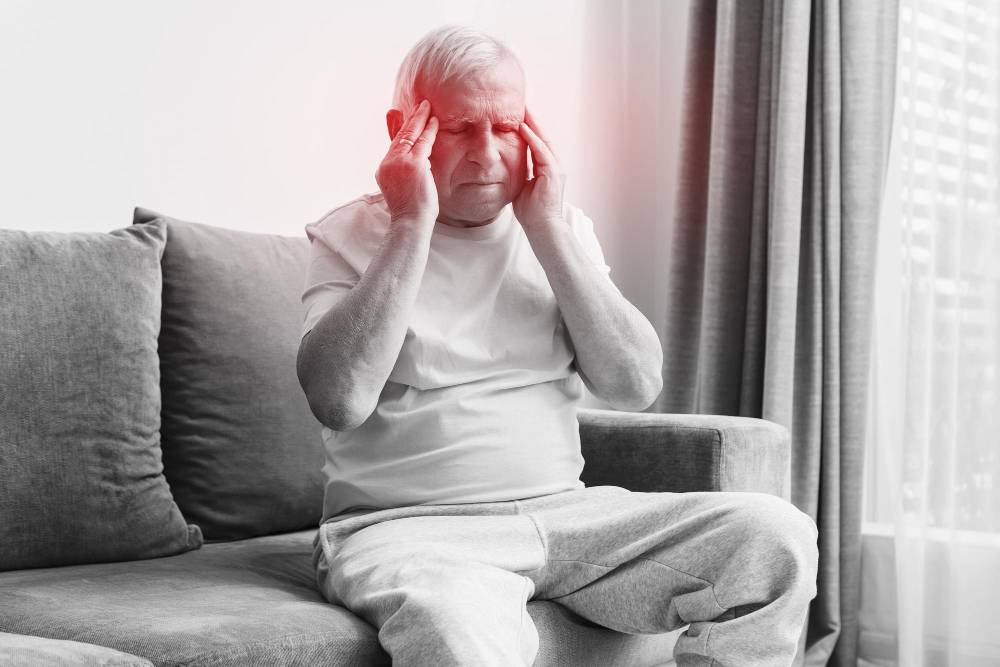When you think of concussions, your mind likely jumps to sports injuries, falls, or accidents, but what if the effects of a concussion could reach as far as your heart? While the primary focus of a concussion is often on the brain, this type of traumatic brain injury can have surprising and serious implications for other parts of your body, including your cardiovascular system. At Capitol Cardiology Associates, we know how vital it is to understand the broader impacts of concussions, especially when it comes to heart health. Keep reading to learn about the potential links between concussions and heart attacks so you know what to watch out for.
The Brain-Heart Link
The brain and heart share a complex, interdependent relationship. While the brain controls the heart’s rhythm and rate through the autonomic nervous system, the heart pumps blood and oxygen that keep the brain functioning. A concussion disrupts the normal functioning of the brain, which can subsequently affect the heart in several ways. This disruption can lead to fluctuations in heart rate, irregular heartbeats, or even more severe cardiovascular issues, such as a heart attack. A heart doctor may often inquire about recent head injuries during an examination because of the interconnectedness between the two systems. Concussions can cause stress on the body, potentially worsening underlying heart problems. This is why it's important for anyone who has suffered a concussion to monitor their cardiovascular health closely and seek guidance from a dependable cardiologist if they notice any irregularities.
How Head Injuries Could Impact Your Heart
The immediate effects of a concussion are usually neurological, such as confusion, dizziness, or headaches. However, the effects can ripple beyond the brain. Concussions can trigger a release of stress hormones like adrenaline and cortisol, which are known to increase heart rate and blood pressure. In some cases, this surge can strain the heart, potentially triggering a heart attack in individuals who are already at risk. The heart’s response to a concussion can also involve autonomic dysfunction, where the part of the nervous system that regulates involuntary actions, like heart rate, goes awry. This dysregulation might manifest as tachycardia, bradycardia, or arrhythmias, all of which can pose serious risks. For individuals with a history of heart disease, this dysregulation can be especially concerning. Consulting with a cardiologist after a concussion is important for early intervention and management.
Shifts in Heart Rate Post-Concussion
Heart rate variability is the measure of time variation between heartbeats, and it can be an important indicator of heart health and how the body responds to stress. After a concussion, HRV often decreases, indicating reduced resilience of the cardiovascular system. A low HRV is associated with a high risk of heart disease and has been observed in patients following concussions. This can lead to an imbalance in the autonomic nervous system, tipping the scales toward sympathetic dominance, which can increase the likelihood of cardiac events like heart attacks. Heart rates can be erratic following a concussion, particularly during physical activity. Activities that previously posed no issue can suddenly become problematic, with heart rates spiking unexpectedly. Regular check-ins with a competent heart doctor can help to monitor these changes and ensure safe progression during recovery.
Other Cardiovascular Implications
Concussions can also contribute to other cardiovascular effects beyond irregular heartbeats. For instance, blood vessel function may be impaired following a head injury, which can affect blood flow and lead to issues such as high blood pressure or increased blood clot risk. This vascular dysfunction can place additional strain on the heart, further elevating the risk of heart attacks or other cardiovascular events. The inflammation that occurs in the brain post-concussion can also influence the cardiovascular system. Inflammatory markers that rise in response to brain injury can travel through the bloodstream, potentially impacting the heart and blood vessels. Inflammation is a risk factor for atherosclerosis, which is directly linked to heart attacks. Individuals who have experienced concussions, particularly multiple or severe ones, should consider cardiovascular evaluations as part of their overall post-injury care, especially if they have any history of heart disease.
When to Seek Help
Common signs that your heart may be affected include dizziness, chest pain, shortness of breath, palpitations, and fainting spells. These symptoms should not be ignored, as they could indicate a serious problem that requires attention from a healthcare provider. Individuals with a history of heart disease or those who experience severe or repeated concussions are particularly at risk. If you notice any of these red flags after a head injury, it’s important to consult with a cardiologist. Even if your symptoms seem mild, the interconnected nature of brain and heart health means that what appears to be a minor issue could escalate without proper care.
Do You Need Professional Care After a Concussion?
At Capitol Cardiology Associates, our heart doctors emphasize the importance of comprehensive care that considers the full spectrum of health impacts following a concussion. Whether you're dealing with changes in heart rate, unexplained chest pain, or simply want peace of mind, our cardiologists are here to guide you through the complexities of heart health post-concussion. If you've recently experienced a concussion and are concerned about your heart, reach out to schedule an appointment.






